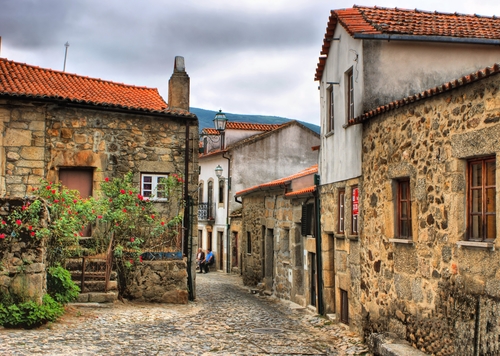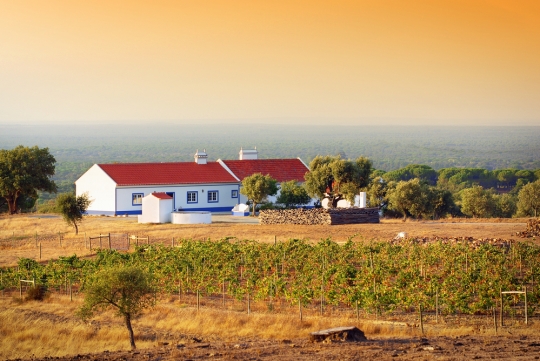Boasting a pleasant climate, friendly locals and low rural property prices, Portugal is an attractive proposition for those dreaming of a renovation project. However, this isn’t a task for the faint-hearted. Here are our tips for carrying out your restoration as smoothly as possible!
Define Your Reasons For The Project
Despite a third of Portuguese families living in rural locations, the countryside is littered with houses, small holdings and agricultural buildings that are either stuck in the 1970s or completely derelict. If you can head away from the popular – and more expensive! – south coast, you’ll find plenty of properties on sale for just a few thousand Euros in the north and interior of the country.However, you really need to be clear about why you are buying a renovation property in the middle of the countryside.
If you are looking to retire there at the age of 65, do bear in mind in 15 years you will be in your 80s, and your physical fitness and abilities could be very different from now. Buying a house with a two acre garden which is located three hours from the nearest hospital might be a great prospect when you are fit and healthy, but could make life harder when approaching the challenges of older age.
If you are looking to create a holiday home for rental or resale, the property needs to be no more than two or three hours from Lisbon to ensure that city-dwelling Portuguese families are your primary market. Overseas holiday makers, who are a smaller market, need to be within an easy drive of Lisbon or Porto airports.
Also ask why you want to renovate rather than rebuild. This is a painstaking process, so you need to ensure that you will enjoy the process!
Visit Each Property Before Making An Offer
It’s so easy to sit at home on a winter’s day looking at the internet, staring at pretty pictures of a romantic abandoned farmhouse, and dreaming of buying one for less than the price of a new car.
If you have the money to do so, it’s also easy to pick up the phone and give the real estate agent an offer without ever seeing the property yourself. However, this would be a major mistake.

If you don’t visit the property, you have no idea if there is something majorly wrong with the building or its location. It might be much smaller than you imagine, or sit right next to a main road. If it’s in an isolated community, you need to assess how well you’d fit in and how you really feel about living somewhere hours from entertainment or shopping facilities.
You should visit more than one property. If the first one was ideal, come back to it after you have visited others.
Get The Deeds Right
If there’s one thing that can cause problems for any property purchase in Portugal, it’s the deeds. It doesn’t matter if you are looking at an old property to renovate or a new build on a development site, having the correct deeds in place is vital for protecting your investment. Without them, you will have problems selling your property, or even worse, someone else may claim legal ownership.
In the past, property held by a family would be passed down to the eldest son. Additional buildings, swapping of land parcels or gifting of land were rarely officially recorded. Sometimes land may be under-reported to lower taxation liability. Many properties don’t have deeds at all, or are sitting on sites technically owned by the state, or have deeds which don’t contain the correct buildings or measurement of land.
You need to see the deeds before you make an offer, but it is likely that they won’t exist or will be wrong. In these circumstances, your offer to buy MUST be conditional on the seller producing correct and valid deeds. Make sure your lawyer makes this condition clear and binding, in writing.
It can take months – or even years – for the current owner to get the correct deeds sorted out. They may even try to produce new deeds which have no legal basis and leave the existing deeds in force. You need a good lawyer to investigate this properly.
Ensure The Property Is Connected To Utilities
Think about what makes your life comfortable today. Clean, running water, hygienic sewerage systems and reliable electricity supplies are essential for everyone. Internet, TV and phone connections are also very important for most people.
If these utilities aren’t available in the property you are about to purchase, don’t accept assurances from the real estate agent that it’s all easily fixed later. You might find the bargain price for a property is due to the breathtaking cost of connecting it to electricity.
Plan Your Budget – Then Double It!
Anyone who has ever done any type of renovations knows there are always hidden costs. A minimum contingency of 10 percent of the project cost is normal for countries where most building projects run smoothly. Unfortunately, Portugal is not usually in that category.
It’s quite likely that your project will take far longer than expected. You might end up paying for work you never foresaw needing, or paying extra for bad workmanship to be corrected. Of course, there’s always the risk that everyone who quotes for you adds a hefty percentage because you’re a wealthy foreigner who doesn’t know what the local rates are.
Portugal doesn’t have the competitive retail sector enjoyed by consumers in the UK and US. This means the cost of bathrooms, kitchens and other significant purchases will be higher than you expect.

If you’ve underestimated the costs of renovating your project, you incur the risk of running out of money. If you can’t pay to complete a project, you’ll face the dilemma of maintaining an unusable property or selling it for less than you invested in it – assuming you can sell.
So, when organising the finances for your renovation project, work out the costs for the worst case scenario.
Find Recommended Professionals
There are a lot of good professionals needed to help you through buying and renovating your rural property in Portugal. Real estate agents, lawyers, architects, local council staff, utility company staff, surveyors, builders and retailers all play a crucial role.
You will need to speak to them fluently, so it will be really helpful if you can speak Portuguese. If not, ask a friend or colleague to translate.
Finding reliable professionals able to perform high quality work sustained over a number of months is hard to do. Use as many networks as you can; ask people you know, browse online expat communities and so on. You can also always ask for recommendations in our Portugal forum.
Know The Regulations
Approach the local council. They will be responsible for planning rules and will also be able to give you plenty of advice about a range of other topics. They are likely to know the professionals who can help you complete your refurbishment; they will alert you to major problems other local renovators ran in to; and they tell you more about the local area. Despite having small groups of staff, it is likely that some officers working there will have fluent English.
Keep Visiting Your Property
Renovation projects are always more complicated than just commissioning professionals and then walking away until the job is done. If you try that, the project will go seriously off schedule and out of budget. If you’re not there to check progress, it’s likely that your contractors will be off earning money elsewhere or taking it easy on your daily rate. Even if you’ve agreed a completion price for each job, someone has to coordinate all the work.
Even very simple things need your presence. What if someone says they’ll provide a bathroom suite, and you don’t like their choice? Or if they put the bath in the wrong position? You might have very specific ideas for your kitchen, which mean the plugs need to be positioned correctly. It’s better to be on site and part of the decision process than spend the next few years regretting someone else’s decisions.
Learn Portuguese
If you’re taking on a rural project, you may be lucky enough to have plenty of English speaking expats nearby. However, you’ll become a member of the local community too, and should make an effort to greet your local neighbours, even if you’re only visiting at the weekends. If you are on friendly terms, your neighbours may be able to keep an eye on your property when you are away, and know how to contact you if they need to.
There are plenty of ways to learn Portuguese, including online free resources. However, if you pay a local to teach you, it might be an excellent way to make some new local friends and acquaintances too.
Emergency Plans
There’s always something that can go wrong in a rural setting. If you have a heart attack or break your leg, you must know who you can contact or where your local medical centre is.
In 2017, more than 100 people died in forest fires in Portugal. You need good insurance for your property and a well-thought out escape plan. Eucalyptus and pine trees along with dried fallen leaves and grass help the fires spread very rapidly. With winds in the wrong direction, a fire over the hill can engulf your home within an hour. Keep important documents and treasured items in a place where you can easily find them. At the first sight of fire in the area, gather your household and important items ready to leave, and don’t wait until the last minute before driving away or your escape route will be cut off.
If you’ve got patience, time and plenty of contingency in your budget, you can end up with a beautiful, historic property that is worth so much more than a simple new build would have been. You’ll also enjoy it more for the sense of achievement at the end. However, make no mistake; it’s a tough road to get there.
Have you renovated a property in Portugal? Share your experiences in the comments below, or answer the questions here to be featured in an interview!

